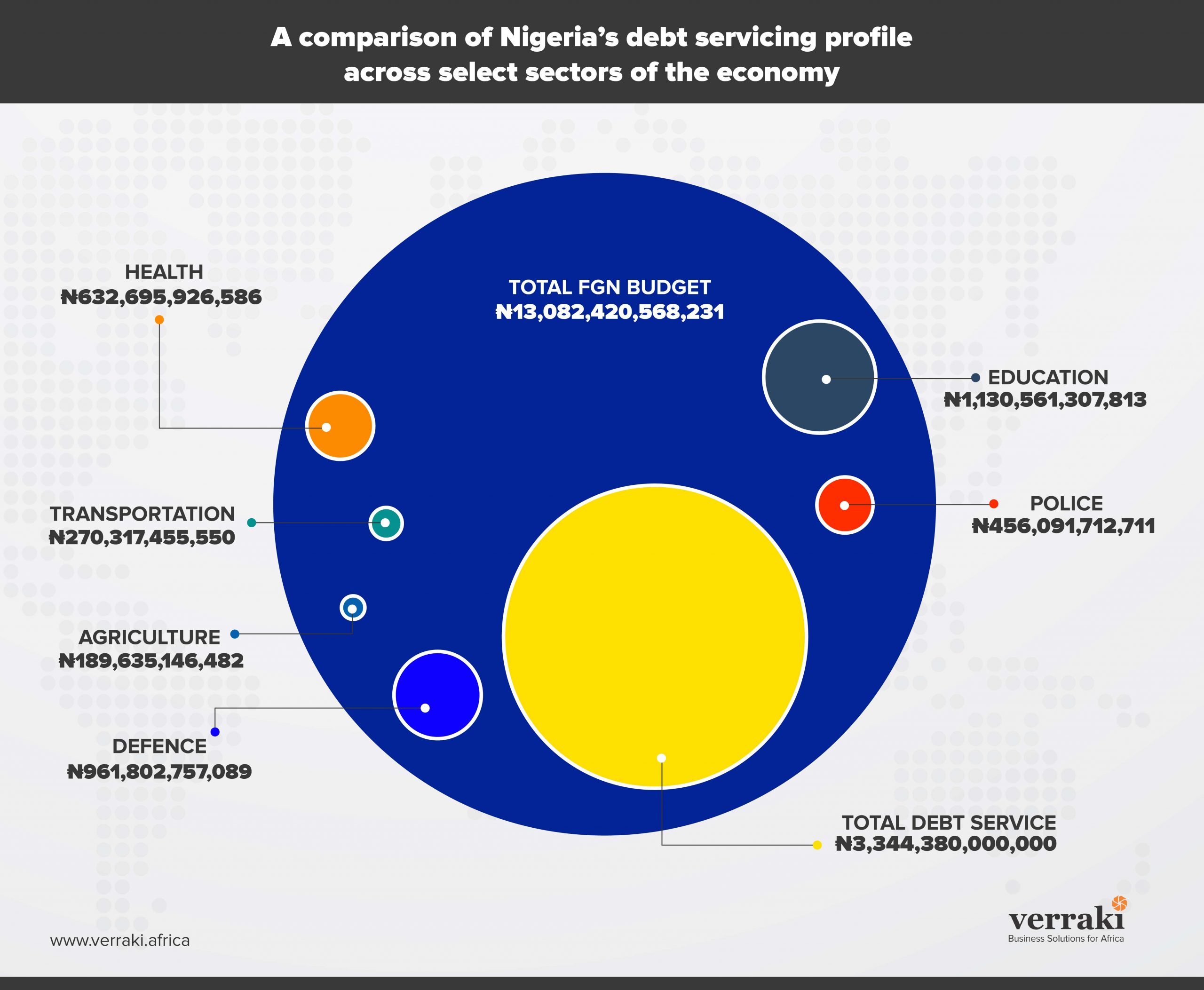
Verraki Partners, a business solutions company focused on accelerating the development and transformation of Africa, has published its maiden edition of the ‘Nigerian Budget Analyses’ a set of infographics that analyze the Nigerian budget across funding sources and expenditure as well as focus on human development and a comparative analysis of Nigeria with other African countries as well as leading emerging economies around the world.
According to Verraki’s report, Nigeria’s 2021 Budget allocation for debt service has enveloped its investments in the critical sectors of the economy. The infographics revealed how discrete investments in Education (N1.1tn); Security (Police – N456bn and Defence – N962bn); health (N633bn) and Agriculture (N190bn), which combined constitute 25.77% of the national budget, are small when compared to the debt service, which currently stands at N3.3tn, a figure that represents about 25.56% of its planned N13tn budget for 2021. Another infographic that analyzed the funding sources of the Nigerian budget and its uses reveals debt financing of N4.2tn. This shows that 33% of the 2021 budget funding will come from new loans while other funding sources will be Asset Sales/Privatisation, Multilateral/Bilateral loans, and Aggregate Revenue inflows. In 2021, the FG plans on spending N3.3tn to service existing debts while taking new N4.2tn debt to finance the budget. This trend of inadequate revenue to finance the nation’s debt obligations poses a significant future challenge for economic growth and human developmental priorities.
In its comparative analysis of Africa’s biggest economies, Verraki showed that Nigeria led the continent in population boom and GDP, with South Africa leading in GDP per capita (2019), budget per capita (2021), Human Development Index ranking (2019), and Global Competitiveness (2019). Ethiopia, on the other hand, trailed on these indices including the 2021 Budget spend. In a similar analysis that compared Nigeria with other leading developing countries, Nigeria trailed in GDP per capita, Budget per capita, Human Development Index, and Global Competitiveness compared to United Arab Emirates, Brazil, Indonesia, Malaysia, and Turkey.
In his comments, Managing Partner, Verraki, Mr. Niyi Yusuf said budgets typically prioritize the focus of any family, institution, or government and urged the Federal Government to reprioritize the objectives of the national budget. According to him, the Federal Government needs to spend more on capital projects in critical sectors that can spur development in the country. He said the government must embark on accelerated structural reforms of critical sectors of the economy to attract significant private capital. This will reduce government spend on debt financing and recurrent expenditure and allow for more spending on infrastructure, health, education, and other strategic sectors.

